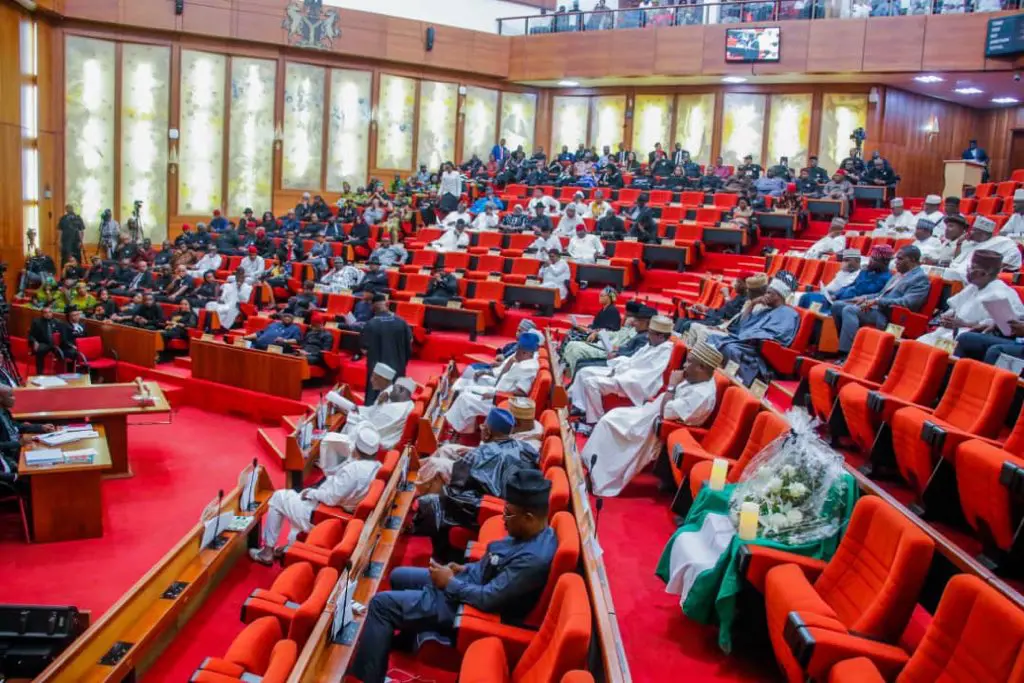The Nigerian Senate passed an amendment to the 2024 Appropriation Act for its second reading on Wednesday, approving a total budget of N6.2 trillion for both capital and recurrent expenditures for the fiscal year.
Senator Michael Bamidele Opeyemi presented the amended bill, specifying that N3.2 trillion is allocated for capital expenditure, while N3 trillion is earmarked for recurrent expenditure to be utilized by the end of 2024.
Senator Adamu Aliero from Kebbi South supported the amendment, emphasizing its importance in funding critical projects not initially covered in the original Act, aligning it with the Renewed Hope Agenda. He highlighted the need to address the ongoing discussions about minimum wage to prevent industrial action.
However, Senator Seriake Dickson expressed reservations, cautioning against rushing the bill to avoid potential pitfalls similar to past incidents that drew public criticism. He suggested separating the amendment to the Appropriation Act from amendments to the Finance Act, 2023, to ensure thorough consideration.
Dickson’s concern reflects a broader debate in the Senate over the timing and scope of legislative amendments aimed at enhancing fiscal governance and addressing pressing economic challenges.
“Let it not be that without the experts and critical stakeholders participating in public hearing. I think that we should be very cautious when we are discussing taxation and even these banks we intend to generate N500 billion are all running around to meet recapitalisation. These are two critical bills.”
Senator Sani Musa representing Niger North on the platform of the ruling All Progressives Congress maintained that banks earn enormous profit which can be inferred from their end of the year reports.
He said the profit was made possible due to robust policies of the government, hence, it should not be difficult for banks to be taxed.
He said: “Money bills are very important bills. The point is that if you look at the end of year report, you discover that commercial banks are making so much money despite the hardship pervading the country.
“I think banks should be well taxed because they make this profit out of the pronouncement made by this government. The reason for removing oil subsidy, the reason for abridging the gap is for the good of this country.”
After contribution by other senators in favour of amendment to the Act, Deputy Senate President, Jibrin Barau, who presided over the plenary called for voice votes and it was passed for second reading.
Get instant and latest news updates via Our WhatsApp Community or Google News online channel.


